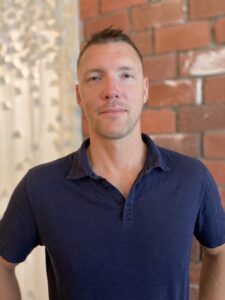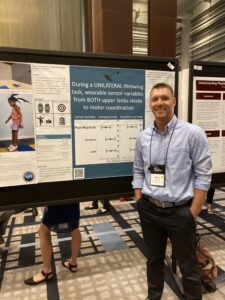SoTL Project Spotlight: Jeff Konrad (Movement Science Program)
 Jeff Konrad
Jeff Konrad
Ph.D. Candidate, Movement Sciences Program
SoTL Seminar Participant in Spring 2022
The goal of a physical therapy training program is to produce entry-level physical therapists who are ready to serve their patients safely and effectively. Experiential learning in the clinical setting, where the student is providing care and using their skills under the supervision of a clinical instructor, is a crucial part of that training. It becomes a formative experience for the student. Assessment tools that are valid for the purposes of guiding the students’ learning and making decisions about their competence are essential for safe and effective practice in the physical therapy profession.
The scholarship of teaching and learning (SoTL) asks questions about and critically investigates student learning. The SoTL training I received with the Center for Teaching and Learning gave me foundation knowledge and inspired me to perform this project. I was able to collaborate with Washington University’s Program in Physical Therapy to test an entrustment assessment tool that scored students on the level of supervision they required to perform key, profession-specific tasks. This type of assessment forces the instructor to consider multiple domains of competency at once through the lens of the student’s autonomy as a practitioner. The primary questions for this project were:
- Does the assessment tool detect difference between students at different levels of training?
- Do students improve on the assessment tool during a clinical training experience?
This entrustment assessment was implemented as a formative assessment that did not affect their grade and the goal was to have students request an assessment from  their instructor at least once per week. The project gave me an opportunity to collaborate with the physical therapy faculty and learn what aspects of the assessment tool were important to them. In order to be a meaningful project, the entrustment assessments needed to span the physical therapy curriculum’s four clinical experiences. That way it would capture students at different levels of training. With multiple time points and data gathered on both students and their clinical instructors, a complex data set was created. This gave me experience using data management platforms and statistical coding software. The research skills (i.e. quantitative skills, presentation skills) that I learned in my PhD training were an asset when analyzing this data set and sharing the findings. We found that the more advanced students did score higher on the entrustment scale than beginner students and that students did improve over the course of their clinical experience.
their instructor at least once per week. The project gave me an opportunity to collaborate with the physical therapy faculty and learn what aspects of the assessment tool were important to them. In order to be a meaningful project, the entrustment assessments needed to span the physical therapy curriculum’s four clinical experiences. That way it would capture students at different levels of training. With multiple time points and data gathered on both students and their clinical instructors, a complex data set was created. This gave me experience using data management platforms and statistical coding software. The research skills (i.e. quantitative skills, presentation skills) that I learned in my PhD training were an asset when analyzing this data set and sharing the findings. We found that the more advanced students did score higher on the entrustment scale than beginner students and that students did improve over the course of their clinical experience.
One of the things I appreciated most about this project was the chance to apply my interest in assessments to a project that served some of the Program in Physical Therapy goals. The results we found reinforced my interest in assessment, particularly formative assessments which are intended to monitor progress and provide feedback. I suspect that each of the formative assessments served as a feedback opportunities where the student could discuss areas for improvement and shift their resources to address those weaknesses. With each feedback cycle the student was empowered to address their own learning and their entrustment score improved.
I was supported throughout the project by both the physical therapy faculty and the Center for Teaching and Learning staff where there is a real passion for mentoring new SoTL scholars. I encourage anyone interested in researching student learning to seek out the excellent resources and knowledgeable experts at the Center for Teaching and Learning.

